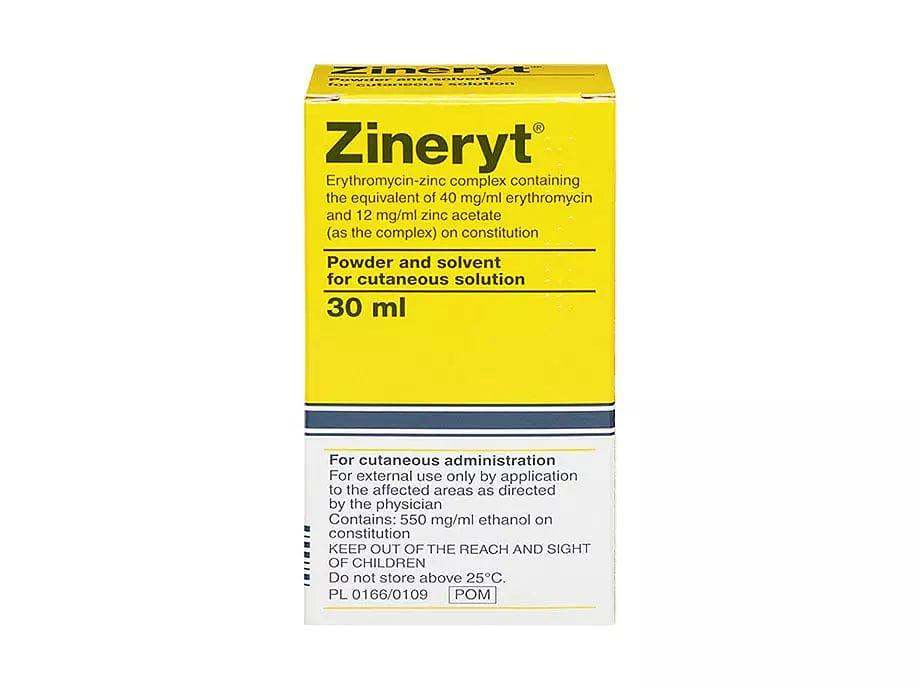- Consultation
- Treatment
- Payment
Treatment options
-
Next day delivery
-
Discreet & confidential
-
UK licensed medication
Zineryt Lotion
Zineryt is a topical antibiotic lotion used for treating acne. This medication can help to reduce redness and itching...
Zineryt is a topical antibiotic lotion used for treating acne. This medication can help to reduce redness and itching by killing the bacteria causing the infection. It contains Erythromycin and zinc as its two active ingredients.
Common reasons our customers use Zineryt Lotion:
- Acne treatment for mild to moderate acne: The active ingredients work together to target the bacteria associated with acne and help reduce inflammation.
- Bacterial infection control: The antibiotic erythromycin in Zineryt targets the bacteria Propionibacterium acnes (P. acnes), which plays a role in the development of acne.
- Reducing inflammation: The zinc acetate in Zineryt has anti-inflammatory properties, which can help reduce redness and swelling associated with inflamed acne lesions.
- Topical and convenient application: Zineryt lotion is applied directly to the affected areas of the skin, providing localised treatment without affecting the rest of the body.
- Less irritation: Some individuals may find Zineryt to be less irritating compared to other topical acne treatments, making it suitable for those with sensitive skin.
- Maintenance therapy: After successfully treating active acne, some people might continue using Zineryt as a maintenance therapy to prevent new breakouts.
PRICE CHECKER
| 1 bottle (30mls) | |
| Premixed | £14.99 |
PRICE CHECKER









Description
Dosage
Side Effects
Delivery
How to use Zineryt Lotion?
Warning and Precautions
Zineryt Lotion Patient Leaflet
Product reviews

How it works
This is a quick process and should only take 1 - 2 minutes. All of your answers are confidential, and just like a GP consultation, you will know what treatment is most suitable for you upon completion.
Once you have completed the quick online form, select the treatment option most suitable to you and checkout securely. If you are eligible for treatment you will be asked to upload an ID.
Welzo will send you order to one of its authorised partner as we only act as a referral service. A medical professional will review your answers to the online medical consultation and determine if it’s safe to prescribe and what treatments are available.
Frequently Asked Questions about Zineryt Lotion
Can Zineryt be used during pregnancy?
What are the ingredients in Zineryt?
Is this medication suitable for me?
How is the medication delivered?
Can Zineryt treat acne?
Is Zineryt prescription only?
How do I order my medication?
Can I cancel or return my order?

Why Welzo
Prescription medication is shipped out for next-day delivery in discreet packaging.
Welzo only works with UK-based pharmacies. All our medication is authentic and issued by GPhC-registered pharmacies and prescribers.
We put you in touch with clinicians and health experts that can support you along every step of your treatment journey.











 Rated Excellent by 26,523+ Reviews
Rated Excellent by 26,523+ Reviews